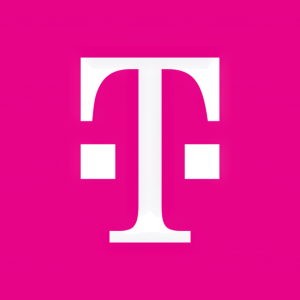You Can’t Enjoy 5G If You Can’t Get 5G
BELLEVUE, Wash.--(BUSINESS WIRE)--If you want the most 5G coverage, you want T-Mobile. New data released today from Ookla, a leader in mobile network testing, data and analysis, shows T-Mobile (NASDAQ: TMUS) customers get a 5G signal more often than Verizon and AT&T customers. That’s 3x more than AT&T customers and 90x (that’s NINE ZERO) more than Verizon’s “Ultra Wideband”! And, T-Mobile customers also got the fastest network response times (latency).
“You can’t enjoy 5G if you can’t get 5G. I can’t believe I have to say this, but apparently some providers think 5G you can’t find is perfectly OK. T-Mobile has America’s largest 5G network, and Ookla’s report shows T-Mobile customers get the benefits of 5G more often,” said Neville Ray, President of Technology at T-Mobile. “We’re building 5G for All on dedicated airwaves to deliver both coverage and speed … while Verizon and AT&T force 5G and LTE customers to share already-crowded bandwidth.”
Bigger? Yep. Better? That, Too.
The Un-carrier’s 5G network is the largest by far, covering 260 million people in more than 7,500 cities and towns. And thanks to the merger with Sprint, T-Mobile is rolling out the best spectrum for 5G — mid-band 2.5 GHz 5G — across the country. It’s already live today in 210 cities and towns and will be in thousands of cities and towns by the end of the year. Where mid-band is deployed, it can deliver average download speeds around 300 Mbps — that’s 7.5x faster than our LTE today — with peak speeds up to 1 Gbps. Verizon’s “Ultra Wideband” can only deliver fast speeds outdoors on specific street corners near base stations. T-Mobile’s mid-band 5G is the sweet spot; it can give customers fast speeds across broad geographies.
T-Mobile has dedicated spectrum for 5G across low, mid and high bands. And that’s important because 5G devices will use a lot of capacity. Verizon and AT&T are stealing LTE spectrum from their existing customers to broaden their 5G coverage. Using Dynamic Spectrum Sharing (DSS), Verizon and AT&T force 5G and LTE customers to share bandwidth, splitting up the capacity so each technology only gets part of it. DSS is an important network feature and should be used in limited scenarios — not to provide an entire nationwide footprint. So, what’s the problem with Verizon’s broad use of DSS? Well, they are already spectrum-constrained and have limited sub-6 GHz spectrum. And now, they’re forced to share that limited resource with their 5G customers too. More traffic, same roads – sounds like a slowdown ahead.
“The physics are simple. When you force more devices to share crowded airwaves, speeds decrease. I predict Verizon’s speeds on 5G and LTE are about to hit a massive speed bump,” added Ray.
By contrast, T-Mobile is building 5G on free and clear dedicated spectrum in all bands with its “layer cake” multi-band strategy. With all three major bands dedicated to 5G, only T-Mobile has wide open freeways ready to take on massive amounts of 5G traffic. And with more low and mid-band spectrum than anyone else, T-Mobile is building an even wider and faster freeway.
For more information on T-Mobile’s network, visit www.t-mobile.com/coverage. And follow T-Mobile’s Official Twitter Newsroom @TMobileNews to stay up to date with the latest company news.
5G: Capable device required; coverage not available in some areas. While 5G access won't require a certain plan or feature, some uses/services might. See Coverage details, Terms and Conditions, and Open Internet information for network management details (like video optimization) at T-Mobile.com.
About T-Mobile
T-Mobile U.S. Inc. (NASDAQ: TMUS) is America’s supercharged Un-carrier, delivering an advanced 4G LTE and transformative nationwide 5G network that will offer reliable connectivity for all. T-Mobile’s customers benefit from its unmatched combination of value and quality, unwavering obsession with offering them the best possible service experience and undisputable drive for disruption that creates competition and innovation in wireless and beyond. Based in Bellevue, Wash., T-Mobile provides services through its subsidiaries and operates its flagship brands, T-Mobile, Metro by T-Mobile and Sprint. For more information please visit: http://www.t-mobile.com.







